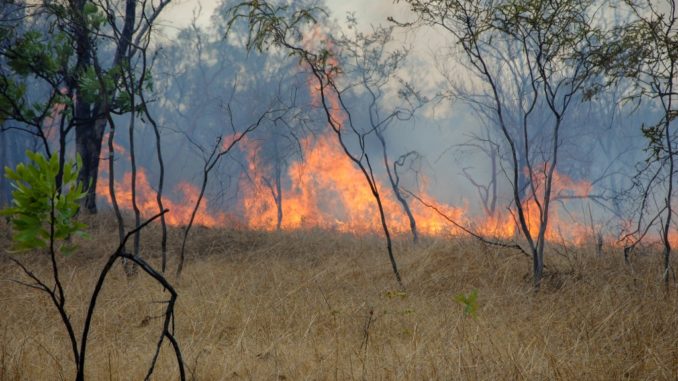
Patsy the border collie rescuing a flock of sheep and saving farmhouses, shearing sheds, and other farm items are probably one of the very few feel-good stories amidst the recent bushfire disaster crippling the entire Australian nation.
Mainstream and social media sites reported firemen rejoicing after rain fell in Australia during the bushfire. It was torrential in some parts, reports said. But the crisis isn’t over. The international community continues to express concern and solidarity, with others taking a committed stance to directly support the firefighters.
International pop star Pink pledged a donation of half a million US dollars, which will go to local fire services. Australian tennis star Nick Kyrgios also joined the call for pledges to support efforts in fighting the bushfire. These are celebrities with the capability to dig into their cashbox without even causing a dent in their supply. How can ordinary citizens or small companies show their support?
An Overview of the Bushfire
What is the scale of the fire and is the entire country burning? The state most affected by the fire is NSW. To visualize the scale of the bushfire, consider this: the devastating fires in California (2018) and the Amazon forest (2019) covered an estimated area of 800,000 and 900,000 hectares respectively. Five million hectares burned in NSW. The Sydney Opera House measures 65 meters in height. Flames that were reported in this bushfire have reached 70 meters. The number of homes destroyed in NSW has reportedly exceeded 2,000.
The cost of the damage will be in the millions if not billions of dollars. More than 4,000 insurance claims have already reached a value of $297 million.

What You Can Do
Just like in any other disaster situations, calls are made to support the effort in fighting the fires and helping the victims. Typically, you could offer your time and volunteer for an initiative, donate goods, offer your expertise, or shell out some money.
- Donate money. Donating money is still the most impactful way to help. Organized bodies dealing with the crisis have a better grasp of the situation and are better equipped to allocate the financial resources properly. While goods are welcomed, they still have to be sorted out, which puts a strain on people on the frontlines who should otherwise be doing direct interventions.
- Work with organizations. There are many established charities, non-profit organizations, church-based organizations and government agencies that have a system in place in dealing with the crisis. Contact these organizations and find out what they need best. Sometimes donating your time to answer phone calls is enough or you could assist chefs and local businesses that have been mobilizing to provide food aid to victims.
- Offer your expertise. Many animals are affected by the bushfires. Some need to be given treatment or medical attention. If you’re a veterinarian, see if you can work with clinics or rescue shelters to help treat animals.
Monitor the situation closely. Disasters like these and the needs can be in constant flux. Be informed about the various fundraising campaigns. You can also mobilize your friends and family members. Just letting them know about the gravity of the situation is already a big step forward.
